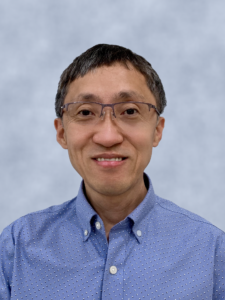PRAIRIE VIEW, Texas (October 20, 2021) – Thanks in part to the work of Chief Scientist and Executive Professor Seungchan Kim, Ph.D., Prairie View A&M University is once again on the leading edge of groundbreaking research. This time, it’s about work that is promising to repurpose cancer drugs.
As a co-senior author of a new study published in Science Advances, Kim, who also serves as the director of the Center for Computational Systems Biology (CCSB) at PVAMU, says certain cancer therapies can be repurposed for treating rare non-cancerous diseases such as pulmonary hypertension, an incurable lung disease.
“The study is multidisciplinary based on our 5-year collaboration with UPMC [University of Pittsburgh Medical Center] physician-scientist Stephen Chan, MD/Ph.D.,” said Kim. “Most of the computational work was contributed by Prairie View University, and the UPMC team led the experimental validation of the findings.”
“Repurposing drugs can cut down the time and cost of developing treatments for rare diseases, which historically don’t receive much investment into research and drug development,” said Chan, co-senior author on the paper and professor of medicine and director of the Vascular Medicine Institute at the University of Pittsburgh and UPMC. “Pulmonary hypertension is an example of a rare disease where there is an unmet need for new treatments, given its devastating consequences. We developed this pipeline to rapidly predict which drugs are effective for PH and get these treatments to patients more immediately.”
A Group Effort for Good
The paper, titled “Computational repurposing of therapeutic small molecules from cancer to pulmonary hypertension,” lists more than 30 authors representing 11 universities and medical facilities, including Harvard University, MIT, and Boston Children’s Hospital.
The research conducted by Kim and Chan involved the development of a computational platform based on a combination of cancer cell line data and small molecule response data to investigate a direct link between a rare disease, such as pulmonary hypertension and cancer, at a molecular level using EDDY, a computational algorithm developed by Kim.
“A computational platform to identify differential network dependency was developed to define a landscape of cancer drug mechanisms in pulmonary hypertension,” Kim said. “We have applied for a provisional patent with UPMC for a new experimental drug to be repurposed for PH, and they plan to move the compound into clinical trials in the future.”
The findings could facilitate future applications that would allow for the repurposing of cancer therapy drugs to tailor a precise treatment or predict the response to a drug to treat non-cancerous conditions.
“By predicting overlap in genes common to cancer and a rare disease, in this case, pulmonary hypertension, they were able to identify cancer drugs that alleviated symptoms of pulmonary hypertension,” said Magesh Rajan, Ph.D., Vice President for Research & Innovation at PVAMU. “Since new drug development is costly and time-consuming, developing a computational strategy for repurposing existing drugs is particularly important. Ultimately, this computational platform could be used to determine an individual’s response to a drug leading to a more precise, successful treatment of disease.”
Kudos for Groundbreaking Work
Funded by the Texas A&M University System Chancellor’s Research Initiative, CCSB is quickly becoming a nationally recognized computational systems biology research center since its inception in 2017. Kim said the center’s part in this latest research may result in a full patent for a “novel drug.”
“I am pleased that the Chancellor’s Research Initiative-funded Center for Computational Systems Biology and PVAMU is gaining national recognition through the successful publication of this research,” said Rajan. “Their research establishing a computational approach to repurpose cancer drugs for use in non-cancerous conditions is groundbreaking. We are glad to support the intellectual property developed through this research.”
-PVAMU-


